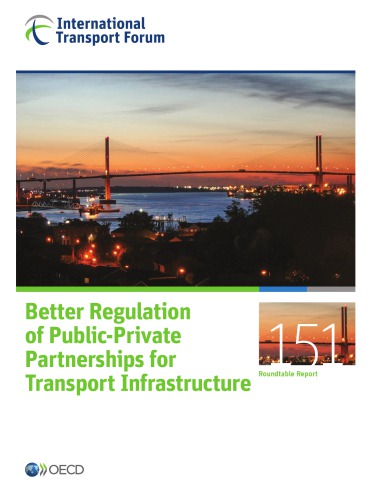

Most ebook files are in PDF format, so you can easily read them using various software such as Foxit Reader or directly on the Google Chrome browser.
Some ebook files are released by publishers in other formats such as .awz, .mobi, .epub, .fb2, etc. You may need to install specific software to read these formats on mobile/PC, such as Calibre.
Please read the tutorial at this link: https://ebookbell.com/faq
We offer FREE conversion to the popular formats you request; however, this may take some time. Therefore, right after payment, please email us, and we will try to provide the service as quickly as possible.
For some exceptional file formats or broken links (if any), please refrain from opening any disputes. Instead, email us first, and we will try to assist within a maximum of 6 hours.
EbookBell Team

4.1
30 reviewsMany governments seek to attract private finance for infrastructure through public-private partnerships (PPPs) in order to maintain investment at the same time as limiting public spending. Experience with PPPs has, however, been mixed. Some transport PPP projects have delivered major cost savings but many more have exceeded their budgets. PPPs are prone to overestimating revenues and when projects run into financial difficulty, risks have a tendency to revert to the taxpayer. The report examines the nature of risks and uncertainty associated with different types of PPP project and the practical consequences of transferring risks to private partners. It assesses the fiscal impact of PPPs and discusses budget procedures and accounting rules to limit the public liabilities they can create. The report also reviews the relative merits of tolls, availability payments and regulated asset base models for attracting finance for public infrastructure from private investors on a sustainable basis.